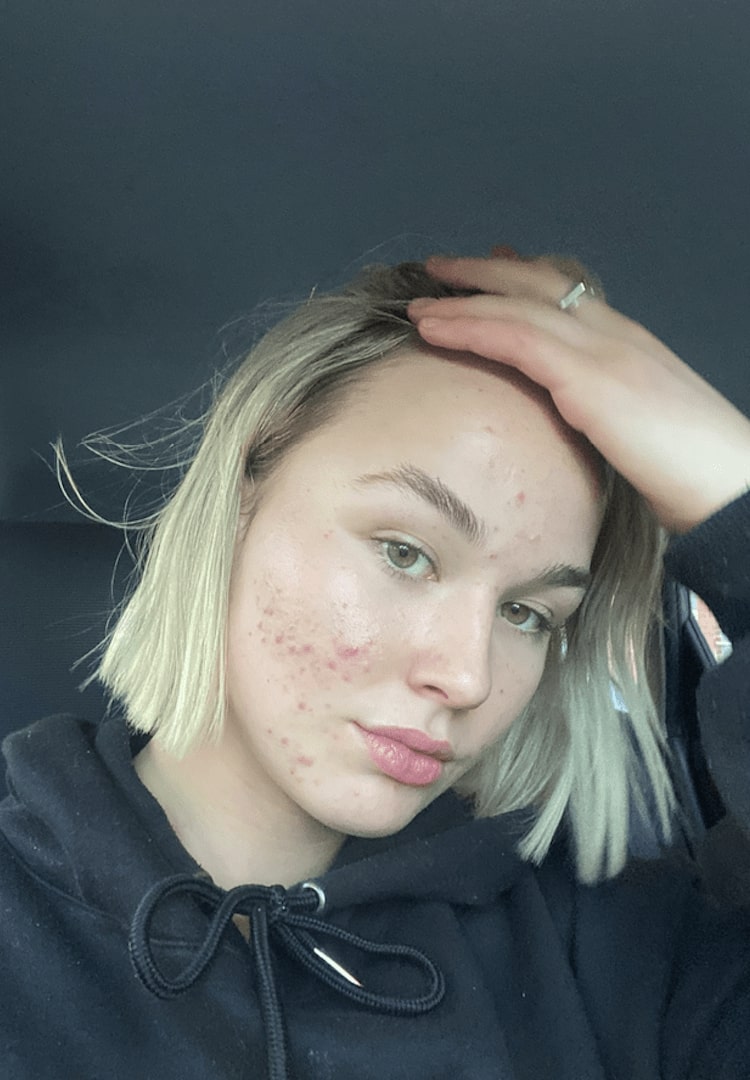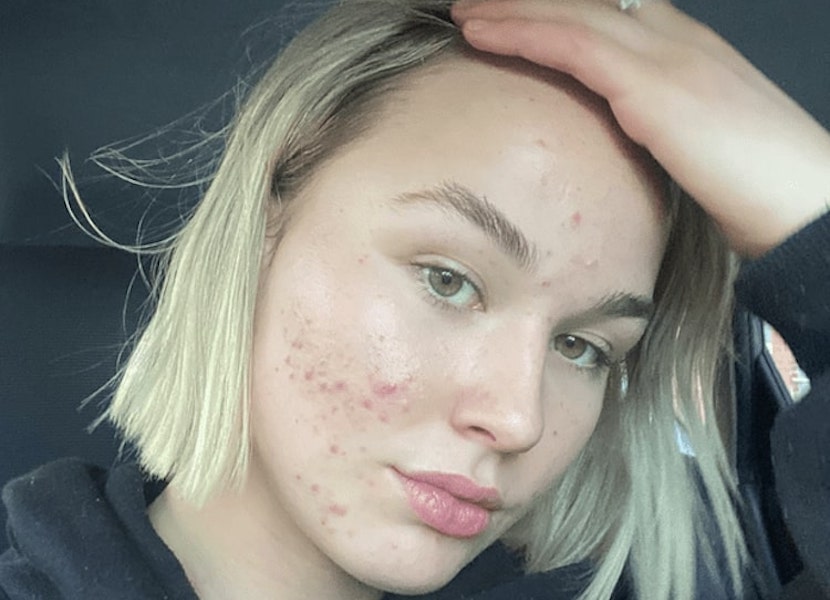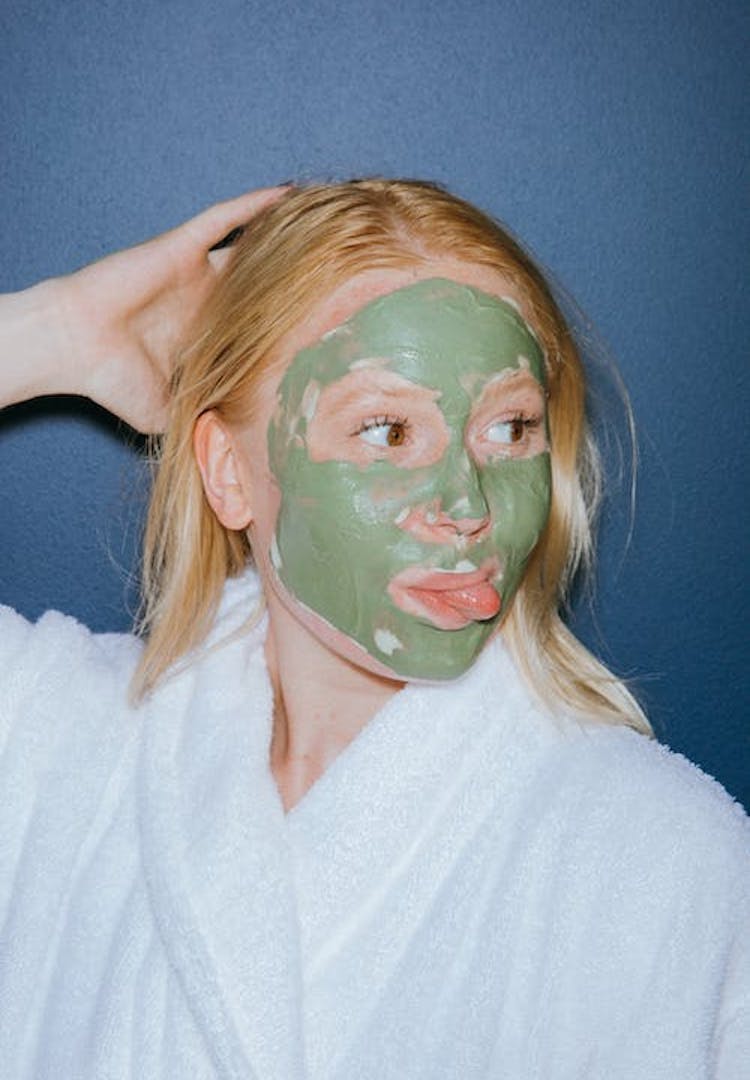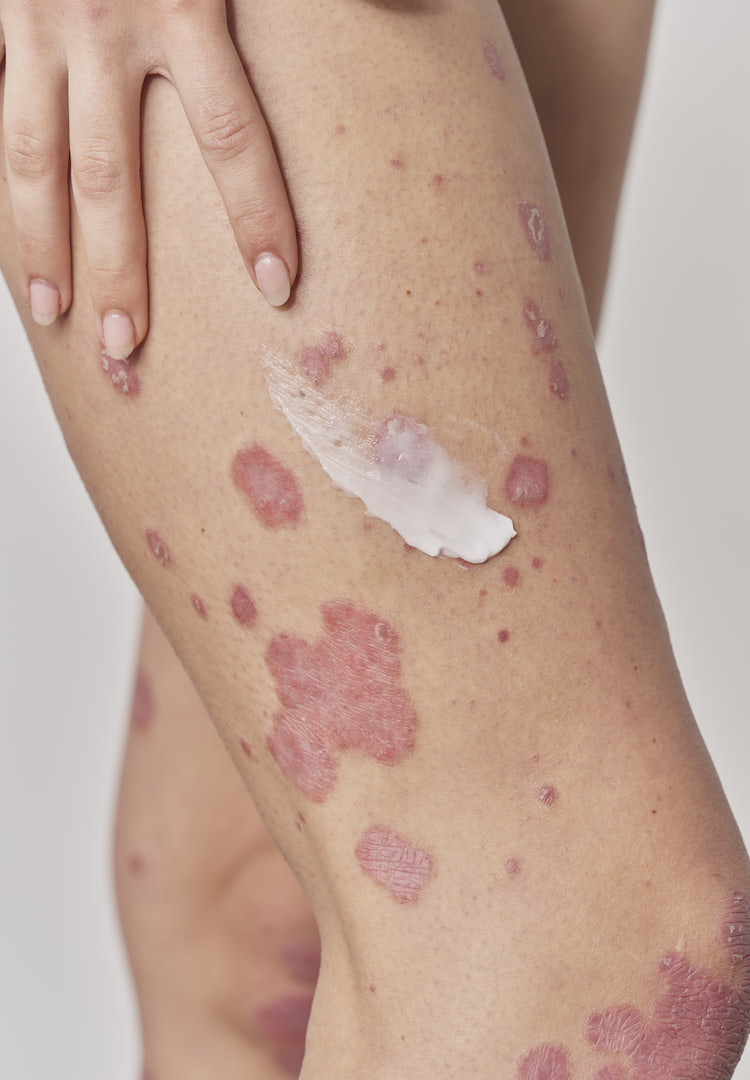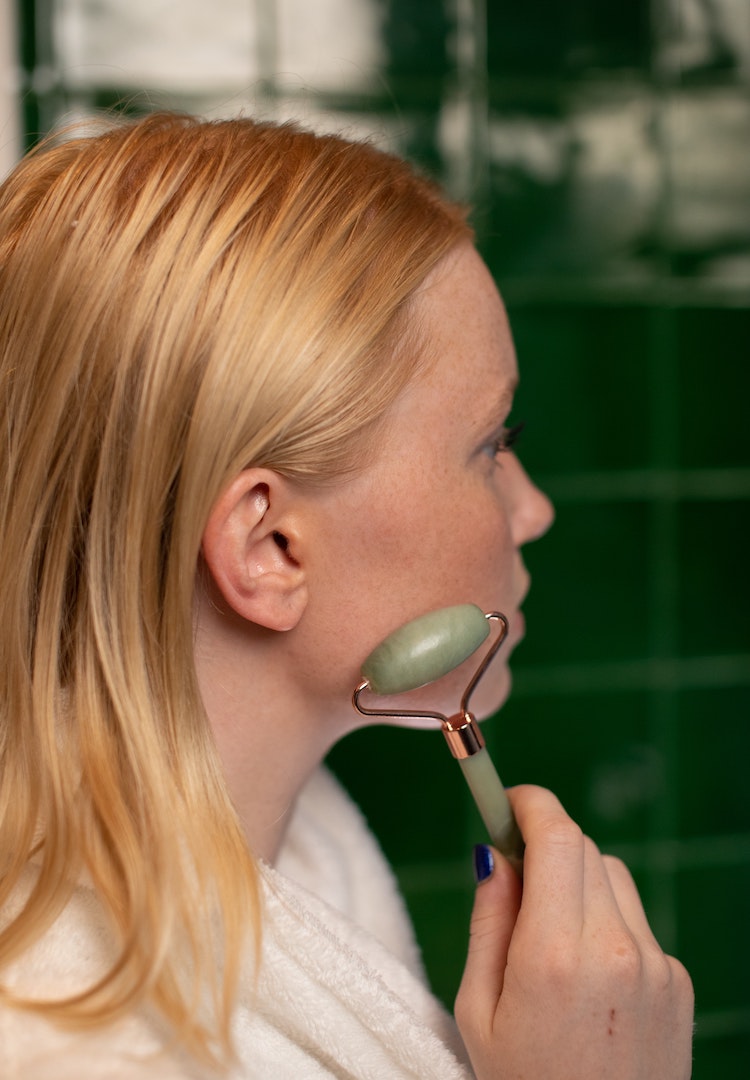I asked an expert what to do about my impaired skin barrier
Words by Ruby Staley
Is this the key to permanently glowy skin?
An impaired skin barrier can impact anyone, at almost any time, and is easily treated if you know how to recognise it. But, like many skin conditions that fly under the radar or are plagued with misinformation, not enough of us are educated on how to remedy a pesky impaired epidermis. Well, I wasn’t anyway.
Way back in the beginning of lockdown, I was dealt a fun combination of serious cystic acne and dry skin after I decided to go off the contraceptive pill. I didn’t know about impaired barriers or my personal skin sensitivities. So instead of giving my skin time to rebalance, pairing back my routine, or using a medication, I hit it with as many hard-core topical products and active ingredients as I could get my hands on.
We like nosy people. Don’t be shy, head to our Beauty section for more.
Think retinol, vitamin C and enzyme peels – I would slather them on day and night in the hopes of eradicating those newly formed imperfections. Surprisingly to me, rather than developing a gorgeous glowing complexion like I’d hoped, my epidermis freaked out.
My skin became even drier, redder, more irritated and even more painful than it was previously. I didn’t know it then, but I had impaired my skin’s barrier. I’m sure I’m not alone in falling for the promise of active skincare – which I know can work wonders in certain cases – and being left disappointed.
So, to help me future-proof my face and protect it from self-inflicted damage, I chatted to an expert in the skincare field, Dr Nancy Ilaya, PHD and scientific director at Kiehl’s. Below, she helps demystify the concept of ‘impaired skin’ and the best ways to treat it at home.
What’s an impaired skin barrier?
To explain the concept of an impaired barrier, first Dr Nancy explains to me what a skin barrier is. “[It] is our body’s first line of defence against environmental aggressors, such as pollution and pathogens,” she says. “It is also essential for keeping the good stuff [like] maintaining hydration and regular skin function.”
Going in a little deeper into the condition’s specifics, Dr Nancy explains that “an impaired skin barrier occurs when the skin becomes more ‘holey’. This is when water leaks from the inside of the skin (transepidermal water loss, or TEWL) at a higher rate, and ‘stuff’ from the environment, or aggressors, enter the body through the skin,” she tells me.
As a result, skin becomes sensitive and red, feels dry and uncomfortable, and appears “roughly textured, flaky, scaly and even bumpy” – which is exactly what I experienced.
How long have we known about impaired barrier as a skin condition?
Although this skincare term has only recently found its way into my vernacular, Dr Nancy explains “impaired skin barrier has been known forever. It has been extensively researched and determined to be an underlying factor in many sensitised, eczematous and dermatitis-associated skin conditions”.
What are the biggest causes?
According to Dr Nancy, our “environment is one of the biggest instigators of impaired skin barrier”, and there are three main aggressors that contribute to the condition. These include:
- Microclimate shifts, moving from a hot environment to cold and vice versa, which can alter trans epidermal water loss and accelerate skin dryness or oiliness.
- Everyday activities like wearing a mask, abrasive or synthetic clothing, shaving and grooming can cause physical disruption of the barrier.
- Using incorrect skin care products – harsh cleansers and peels, physical scrubs and exfoliants – can cause physical disruption to the physical skin barrier, while the pH and surfactants can disrupt the hydrolipidic layer of the barrier, which is important for maintaining moisture and hydration in the skin.
How common is it to develop an impaired skin barrier?
You’ll know your skin barrier is impaired if the “skin becomes sensitised and red, feels dry and uncomfortable, and appears roughly textured – flaky, scaly and even bumpy”. Although it can impact almost every type of skin, Dr Nancy says some people can be more likely to develop compromised skin barriers dependent on genetics, as well as what the skin is exposed to.
“Genetics explains why some people are more prone to eczema and dermatitis-like skin conditions. However, more commonly, a compromised skin barrier can occur due to environmental factors that directly alter the rate of transepidermal water loss and loss of skin barrier lipids, which are important for maintaining the integrity and function of the skin barrier.”
Can we be proactive about protecting our skin to prevent an impaired barrier?
We all know to wear sunscreen to prevent sun damage, but proactively caring for the skin barrier can be just as important. To secure the “key to healthy and radiant glowing skin”, Dr Nancy recommends “a moisturiser, such as Kiehl’s Ultra Facial Cream, that contains humectants and adds water back into the skin and a balance of lipids to help the barrier reduce TEWL and seal in hydration”.
For more on how to repair your damaged skin barrier, head here.


